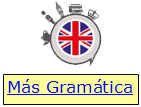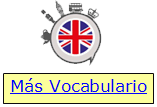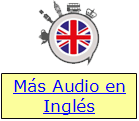We’re waiting for Reza. Do you know where
he is? Has he contacted you?
“He might be on the way.” – “He could be, yeah.”
“Where do you think he is?” – “He might be on the way. It’s raining in
Valencia, so the traffic lights might not be working.”
“He could be on the bus.”
“He may be having coffee with an attractive young Spanish girl.”
“He’s teaching! He can’t be having coffee because I know he’s teaching
now in the British COuncil. Unfortunately, he can’t be with us today.”
Modal verbs COULD BE a difficult topic!
Most modal verbs are not too difficult when used in the present.
Some students question the difference between might and could.
Students at a lower level shouldn’t ‘sweat over’ (worry about) the
difference between might and could, or ‘get headaches’ (don’t worry
about it).
Might and could are often interchangeable for probability.
Modal verbs are not usually put together in course books. They are
taught in groups, for example you might see ‘must’ and ‘can’t’ together
or ‘might’ and ‘could’.
“Reza must be in class now.” (Hay una posibilidad muy alta – 95%)
“He should be in class now.” (Reza debería estar en clase ahora.)
“He should be here by now.” (expressing surprise and concern) “Why isn’t
he here?”
Must – Can’t
The negative of must for speculation is can’t – (not mustn’t!)
“He must be in class.” (estoy casi seguro)
“He can’t be in class.” (estoy casi seguro que no es en la clase)
“He can’t be on the bus because he’s teaching.”
Don’t confuse with the use of MUSTN’T for prohibition: “Dogs musn’t be
on the bus” “Horses mustn’t be on the bus.”
Don’t use can for probablity/possibility
”Reza can be on the bus” is not correct for speculation.
It’s better to say “Reza could be on the bus” or “Reza might be on the
bus.”
BUT….you can use the negative can’t for speculation: “He can’t be ill.”
“He can’t be in class.”
HAVE TO and DON’T HAVE TO are not opposites in meaning
“I have to get up early tomorrow morning.” (Tengo que….)
“I don’t have to get up early tomorrow morning.” (No es necesario…..)
Don’t use the negative of ‘could’ for speculation: It couldn’t
rain this afternoon.
It is correct to say “It might not rain this afternoon.”
“He couldn’t come.” means it wasn’t possible for him to come.
“He might not come.” means there is a possibility of him appearing.
May is used more for polite and formal (very polite) permission “May I
have a biscuit?” “My I use your toilet?”
MODAL VERBS IN THE PAST
MODAL VERB (must/might/could/can’t) + HAVE + PAST PARTICIPLE
“Reza had an early lesson today. he MUST HAVE GOT UP early.”
“He might have slept in.”
“His alarm clock might not have rung.”
“He might not have heard his alarm.”
“He might have been abducted by aliens!”
“He might have been kidnapped by ISIS or the CIA.”
“He can’t have been kidnapped.”
“He might have had a hangover.”
Gill, now that you don’t have regular classes, you must have lots of
spare time? I suspect you must have been happy to be sleeping later in
the morning.
Gill should be happy, but her body clock still rings at 7. At 8 o’clock
she’s on the move.
When I sent Gill a mesage at 7.30am, I thought “Gill must be sleeping,
she can’t be awake.”
Gill’s a morning person. She doesn’t have to get up (early), but she
does.
It might take Gill a while to get used to the new hours.
Pronunciation:
“Reza must have got up early.” – the HAVE can sound like ‘OF’.
“He should have phoned me.”
“He might have phoned.”
“He could’ve phoned very early and I was in the gym.”
“I must have been in the gym.”
“He can’t have been in class.”
“He must have gone to the gym.”
“He must have seen you in the gym.”
“He must have said ‘hello’.”
“He must have fallen in the gym.”
“He must have had a shower after.”
“He can’t have gone home sweaty.”
“He should have (should’ve) phoned you.”
“He should’ve sent you a message.”
“He shouldn’t have not have appeared.”
“He can’t not have seen your message.” = You must have seen it.
MUST and HAVE TO can be used to talk about
obligation – “GOT TO” is also possible. It’s more common in British
English.
“I’ve got to buy some new slippers.”
“I’ve got to pay this this afternoon.”
Must’ve (must have) and should’ve (should
have) are often confused.
If someone comes back from the beach and they are red because they
didn’t use any suncream, you could say. “You should’ve used your
suncream. You shouldn’t have stayed out in the sun so long.” (critisism/advice
in the past)
“You shouldn’t have stayed in the sun so long without suncream.”
It’s NOT correct to say “You musn’t have stayed out in the sun
so long.”
“You must’ve used suncream.” = I’m sure you did because you didn’t burn.
“You shouldn’t……” – advice in the past.
“You should’ve taken your beach umbrella.”
You take a bottle of wine or chocolates to your friend’s house when you
are invited for dinner. Your friend says, “You shouldn’t have done that.”
/ “You needn’t have done that.” (It wasn’t necessary).
“You shouldn’t have bothered.”
“You really shouldn’t have.”
“You needn’t have.”
“That’s so kind!”
Use NEED for necessity – “You need to go to the doctor.”
But ‘need’ in the past is only used in the negative: “You needn’t have
wasted your time.”
“You needn’t have listened to this episode of modal verbs!”
 *Dispones
de más
PODCAST en inglés publicados en los cuadernos anteriores *Dispones
de más
PODCAST en inglés publicados en los cuadernos anteriores
a los que puedes acceder directamente así como al índice de su
contenido. |



 *Dispones
de más
*Dispones
de más


